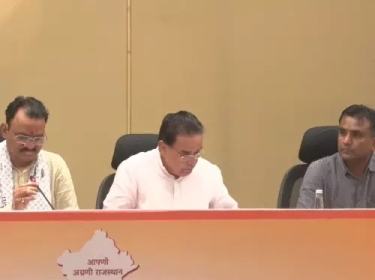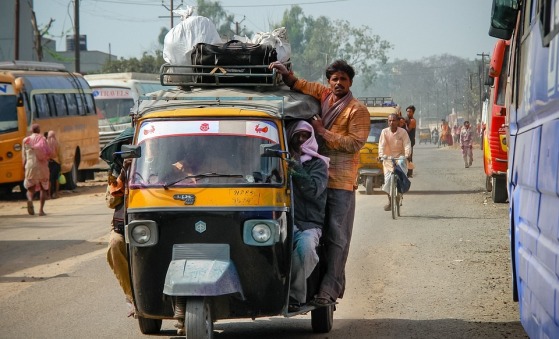
The Rajasthan cabinet on Sunday, August 31, approved dramatic enhancements to the state’s anti-conversion law, introducing life imprisonment provisions that represent a massive escalation from the legislation passed six months earlier.
Chief Minister Bhajan Lal Sharma’s government cleared the amended bill ahead of the monsoon assembly session beginning Monday, September 2. The move significantly strengthens the Rajasthan Prohibition of Unlawful Conversion of Religion Act, 2025, which Health Minister Gajendra Singh Khimsar had steered through the assembly in February.
The February law established penalties of one to five years imprisonment with Rs 15,000 fine for basic unlawful conversions. Enhanced penalties applied to conversions involving minors, women, or Scheduled Caste and Scheduled Tribe members, carrying two to ten years imprisonment and Rs 25,000 fine. Mass conversions attracted three to ten years imprisonment and Rs 50,000 fine.
The latest cabinet approval introduces drastically harsher punishments. Law Minister Jogaram Patel told media during a press conference, attended by Deputy Chief Minister Premchand Bairwa, that the amendments include life imprisonment for repeat offenders and mass conversions, with fines reaching Rs 50 lakh.
The new structure prescribes seven to fourteen years imprisonment with minimum Rs 5 lakh fine for basic illegal conversion. Conversions targeting vulnerable groups now carry ten to twenty years imprisonment and minimum Rs 10 lakh fine.
The amendments introduce new categories not present in the February law. Patel announced to media that using foreign or illegal funds for conversion purposes will attract ten to twenty years imprisonment and Rs 20 lakh fine. Crimes involving force, fear, marriage promises, minors, or trafficking of women will invite twenty years to life imprisonment with Rs 30 lakh fine.
The enhanced bill maintains the February law’s framework requiring sixty-day advance notice to district magistrates for voluntary conversions, with mandatory police inquiry into conversion motives. Post-conversion declarations remain compulsory within sixty days and must be publicly displayed on magistrate office notice boards.
Both versions exempt ‘Ghar Wapsi’ from conversion definitions. The February bill stated that reconversion “to his immediate previous religion” would not be deemed conversion, defining it as religion “practised by the person voluntarily and freely.” Patel reiterated Sunday that returning to ancestral religion is not considered conversion, addressing Vishwa Hindu Parishad lobbying against “love jihad.”
The legislation represents Rajasthan’s fourth major attempt at anti-conversion laws since 2006. Former Chief Minister Vasundhara Raje’s government passed bills in 2006 and 2008. The 2006 Religious Freedom Bill was rejected by the governor following complaints from religious minorities, while the 2008 version was denied presidential approval by the UPA government. When Raje returned as chief minister during 2013-18, the President again rejected the bill in 2017, stating it “deviated from national policy.”
The current government revived efforts in November 2024 with cabinet approval. Following the cabinet’s approval on November 30, 2024, Health Minister Gajendra Singh Khimsar tabled the bill in the assembly on February 3, during the budget session. Following debate, it passed and became law, making Rajasthan the twelfth Indian state with anti-conversion legislation.
All offences under both versions remain cognizable and non-bailable. Section 13 provides protection for officials acting “in good faith,” stating no legal proceedings shall lie against any authority for actions taken in pursuance of the law. The burden of proof lies on conversion facilitators, while family courts can declare marriages conducted solely for conversion purposes void.
BJP legislator Ghanshyam Tiwari had praised Sharma’s “historic decision” to crack down on conversions and “love jihad” during the February debates, though the term lacks recognition in Union government nomenclature or court judgments.
The enhanced version appears likely to pass during the upcoming session despite anticipated legal challenges. Opposition parties and civil rights organizations argue such laws violate Article 25’s religious freedom guarantees. The Supreme Court has tagged multiple PILs challenging similar laws in other states, with recent observations suggesting some provisions may face constitutional scrutiny.
Photo source: Dainik Bhaskar




